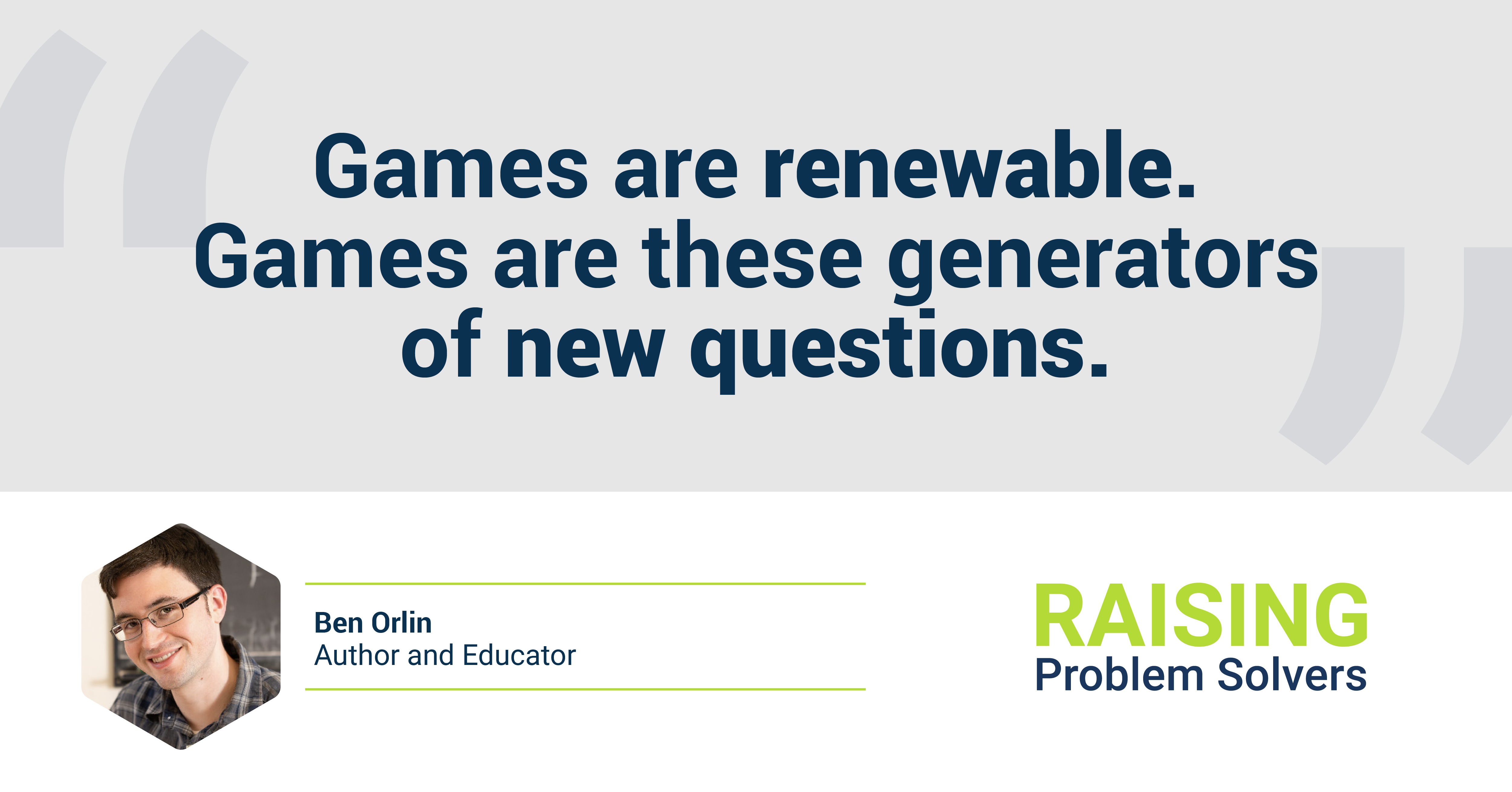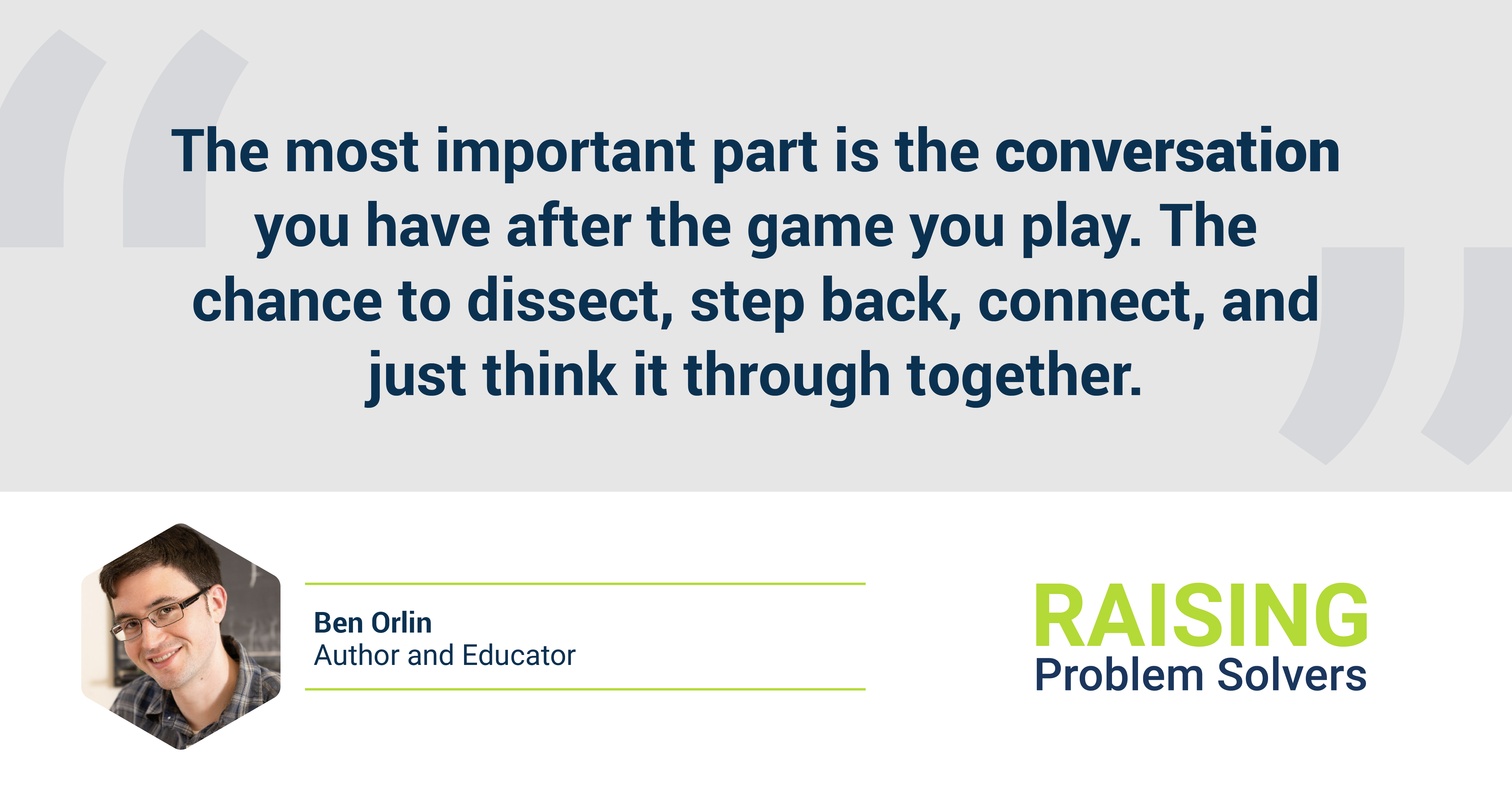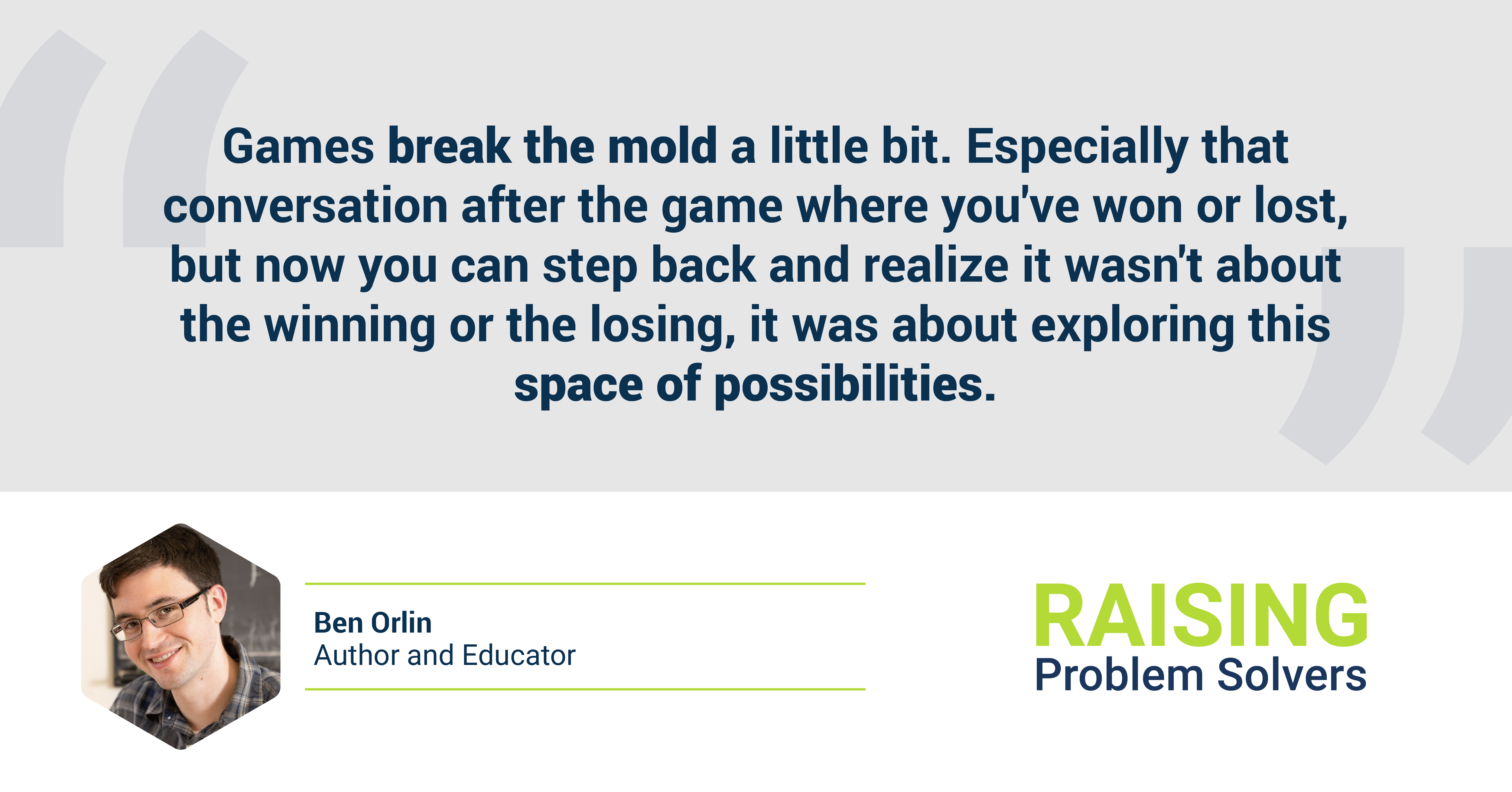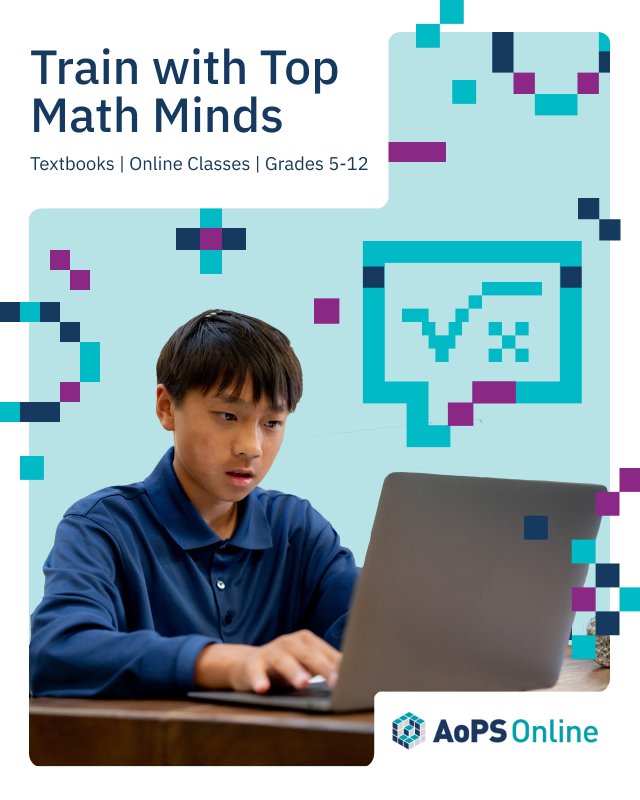Author and educator Ben Orlin joins the podcast to talk about his latest book, Math Games with Bad Drawings, and if our students can really learn meaningful math through comics, puzzles, and games.
There’s a peculiar trend when it comes to math taught in classrooms: It’s innately competitive. When a student scores lower than the student sitting next to them, they will feel less proficient. And what’s worse: They might stop pursuing math altogether, thinking it’s just not for them.
There’s a scarcity of mathematical understanding and excellence today. One way to reverse the trend is to eliminate the competitive nature and focus on collaboration instead. Math games can help do that.
In this episode, Ben Orlin describes the difference between puzzles and games, showing us that pursuing math can be much more than a tournament.
Games can help math become more about exploring the space of possibilities, Ben says.
Rigorous Math Through Puzzles and Games
Often clumped together, both puzzles and games can be highly beneficial for students when it comes to learning math — and not just for the fun factor either.
First, it’s important to understand how the two are different from each other:
Puzzles can be fun, challenging, and full of reasoning for a student. However, they’re limited by the fact that once you’ve solved one, it’s done. Puzzles are carefully sculpted to be solved once, says Ben. To redo one is usually boring.
Games can provide a similar kind of challenge as a puzzle, but with the added bonus of being re-playable. Each game will bring new decision points and trade offs, as well as collaboration with whoever you’re playing with or against.
If two students sit down to a game of chess, and one student wins, they haven’t won chess forever right? The students will likely play again, with every game they play having slightly different circumstances.

Games Strategically Sculpted for Learning
So is there really a place within math education for games? Do these fun exercises truly make a difference for our problem solvers of tomorrow? Yes, says Ben. But the puzzle and game choices must be well thought out.
There is a long tradition of using puzzles in math. They provide a nice wrapper for mathematical ideas. Games, on the other hand, are a relatively new concept in the world of mathematics. They can be broken into two types:
1. Gamification: This is the idea of taking a traditional math concept and turning it into a game. Think of it as a worksheet with a scoreboard. This can add some fun to the classroom, but it won’t make a huge difference.
“It’s taking the kind of practice you would normally do in a classroom and turning it into a game,” Ben says.
2. Open-ended games: This concept is less about the curriculum and more about dealing with strategic situations. Open-ended games lay out a set of rules and then let the student explore, probe possibilities, and develop heuristics that capture the situation.
“The games that excite me more are less about curriculum,” Ben says. “They’re less about teaching you to add fractions or to divide polynomials, and more about open-ended strategic situations.”
With open-ended games, students can tap into the same skills that a good math education taps into.
Overlap of Math and Humor
If you look at the selection of math books at a store, you’ll see many options for math puzzles. Games … not so much. After recognizing this gap, Ben went to work on his book Math Games with Bad Drawings.
Originally intended for adult game players, Ben felt that most of his readers enjoyed games but not math, despite how similar in structure the two are. What Ben found was that when you write a colorful, playful paper-and-pen gamebook, younger audiences want to get involved too — making his book more of a family book that parents and students can both enjoy.
Math as Community
Most games are collaborative in nature. By playing a game, two students can discuss tactics and gain a deeper understanding of how to play the game better next time.

Most games will have a winner and loser, and that can add somewhat to the excitement. But too much focus on winning can stop a student in their tracks before they ever realize their place within mathematics.
Tournament Atmosphere of Math Classrooms
Many students that could go on to be incredible mathematicians will never get there because of current classroom settings. The structure is just too competitive. Student A might think math just isn’t for them because they never score as high on math tests as Student B.

While the idea of tailoring a student's individual coursework is outside the realm of possibility when one teacher must teach 20–30 students, games can pick up the slack. They can dispel the idea that only the top-scoring students are worthy of pursuing a career in mathematics.
Guest Links and resource recommendations
--
This episode was brought to you by Art of Problem Solving, where students train to become the great problem solvers of tomorrow.
To get weekly episode summaries right to your inbox, follow the podcast at the bottom of this page or anywhere you get podcasts. Ideas for the show? Reach us at podcast@aops.com.












